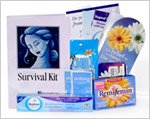Caregiver Village, an online community….
At Caregiver Village, we’re here to serve the needs and concerns of today’s caregivers. Its a place to connect with other people who face similar challenges, obtain valuable resources, share journal entries and read those of others about caregiving journeys. Visitors can meet well-known authors and participate in their book clubs and play our Village Chronicles game, for learning or just for fun. The Village Chronicles is an entertaining on-line mystery adventure story that integrates caregiving situations into a game-like atmosphere. You can connect with your friends, find links to valuable resources within Caregiver Village, solve puzzles, achieve ranks, and earn badges. It’s a learning experience that is engaging and fun.
Learn more at: http://www.caregivervillage.com/social-media



 alth_center/assessment_meno.htm
alth_center/assessment_meno.htm